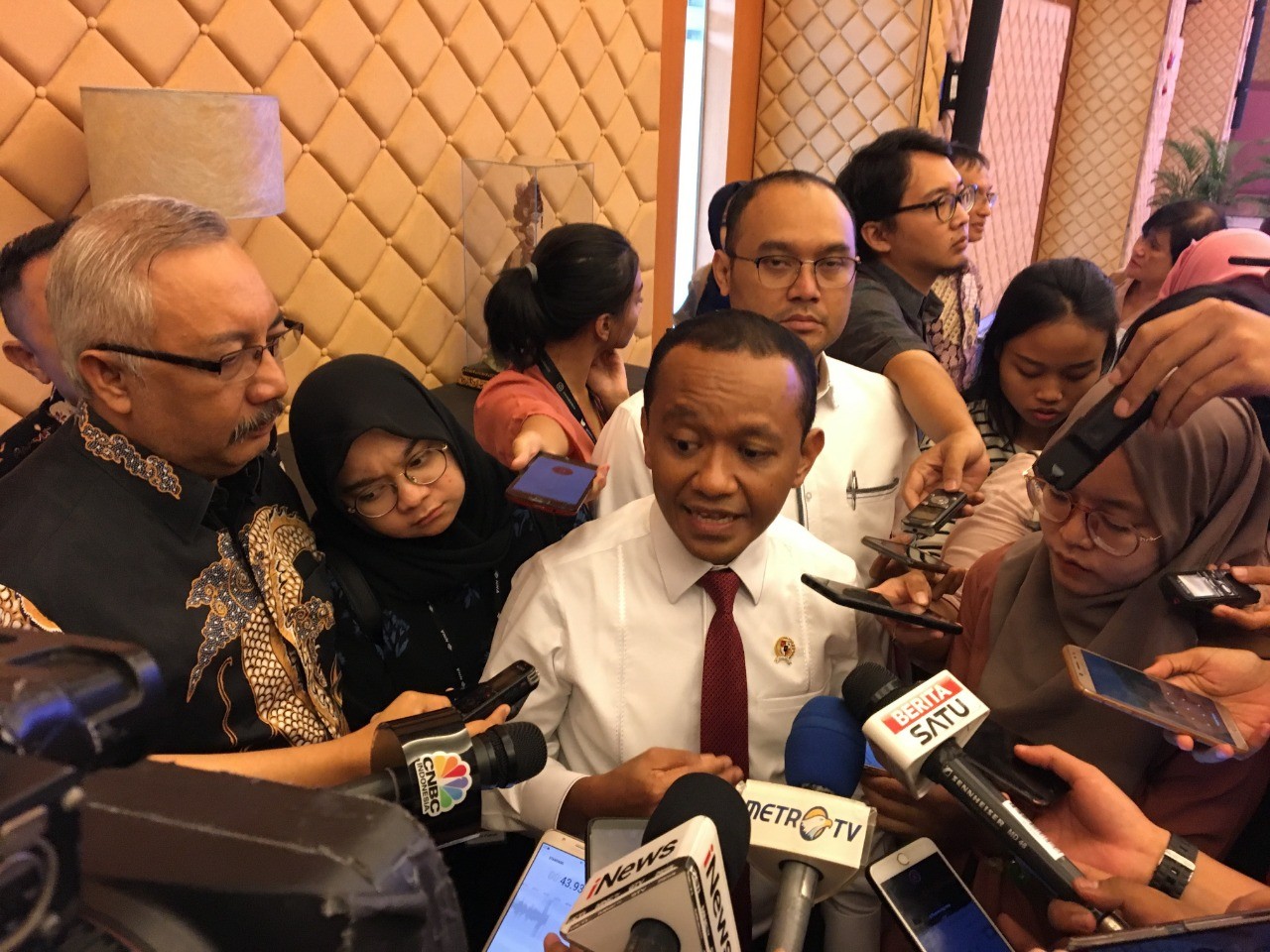Popular Reads
Top Results
Can't find what you're looking for?
View all search resultsPopular Reads
Top Results
Can't find what you're looking for?
View all search resultsForeign investment falls as COVID-19 pandemic hits major investors
Indonesia’s foreign direct investment (FDI) fell by 7 percent to Rp 98 trillion in the January to March period from the fourth quarter of 2019, the BKPM reported
Change text size
Gift Premium Articles
to Anyone
I
ndonesia’s total investment realization slightly increased in the first quarter of this year, but the global economic woes caused by the COVID-19 pandemic will likely reverse the investment trend in the rest of the year.
The Investment Coordinating Board (BKPM) reported that the country’s investment grew by 1.2 percent to Rp 210.7 trillion (US$13.5 billion) in the first three months of the year from the figures recorded in the November to December period in 2019.
Although it suggested little impact from the coronavirus pandemic, the data might not tell the true story as foreign investment realization began to fall during the January to March period.
Indonesia’s foreign direct investment (FDI), which accounted for 46.5 percent of total investment, fell by 7 percent to Rp 98 trillion in the January to March period from the fourth quarter of 2019.
Singapore, which recently saw a worsening trend in its number of COVID-19 cases, was Indonesia’s top source of investment with US$2.7 million, contributing 40 percent to total FDI. It was followed by China, which was starting to reopen its economy, with US$1.3 million, contributing 18.9 percent to total FDI.
“The COVID-19 pandemic first affected investment in mid-March, when FDI started declining,” Bahlil said in an online briefing on Monday.
Bahlil said the projected investment in the next three months might be lower than Rp 150 trillion even if the pandemic faded in May. In the worse-case scenario, the projected investment this year could reach Rp 817 trillion, 7 percent below the target.
“If the COVID-19 pandemic drags on to June or July, I have to be honest that we would have to revise even the Rp 817 trillion investment projection,” Bahlil said in an online briefing on Monday. “But in the third and fourth quarters, investment is expected to offset our deficit in the next three months.”
The unfolding COVID-19 pandemic is obstructing the government’s plan to spur investment. Last year, the country managed to attract Rp 809 trillion of investment, slightly above the target.
On the upside, the agency has yet to report any pullouts from investors. Instead, some investors are only delaying their projects, such as the Jakarta-Bandung high-speed railway project, a joint venture between Indonesian and Chinese railway companies.
Contrary to the trend in FDI, domestic investment, which made up about 53 percent of total investment in the first quarter, rose by 9.5 percent quarter-on-quarter to Rp 112.7 trillion during the January to March period.
Total investment, mostly channeled to projects in the transportation, warehouse, telecommunications, metal and energy sectors, created 303,085 jobs between January and March. It marked an 8 percent decline from the number of jobs created in the last three months of 2019.
Institute for Development of Economics and Finance (Indef) researcher Andry Satrio said the agency’s data “had yet to reveal the impact of the COVID-19 pandemic on investment”. According to him, the significant impact would be seen in the second quarter of this year.
“I think the growth of FDI and domestic investment will likely fall in the next quarter,” Andry told The Jakarta Post via text message on Monday. “We are relying on domestic investment right now, but the BKPM should prevent an FDI outflow from Indonesia.”
Most foreign and domestic funds were invested in projects in East Java, followed by West Java, Jakarta, Central Java and Riau. With the national epicenter of the outbreak located in the first three provinces, investment was expected to hit hard as a result of the emergency measures to contain the virus.
Perbanas Institute economist Piter Abdullah said investment was channeled mostly to Java-based projects because of inadequate infrastructure outside the island. The government was still developing toll roads across the country to support logistics.
“With better infrastructure outside Java island, the pattern of investment in the country will shift and create a balance between investment on and outside the island,” Piter told the Post on Monday. “It is not easy to shift the center of economic growth outside Java Island.”










